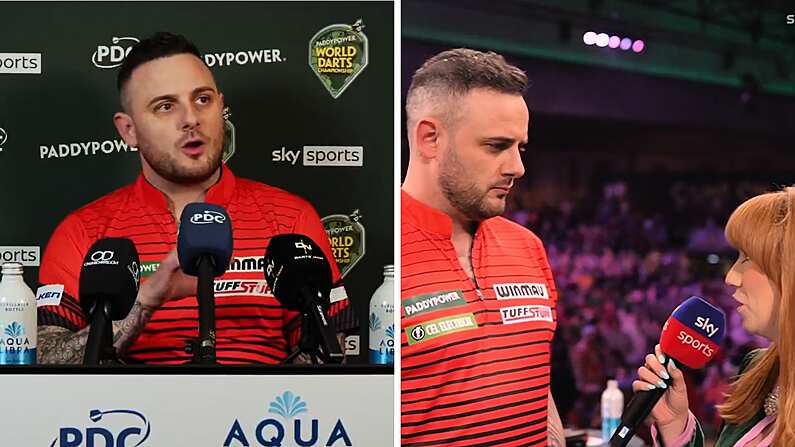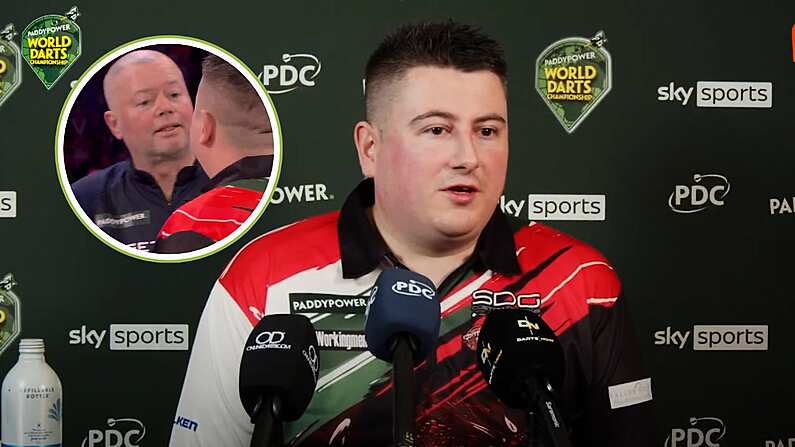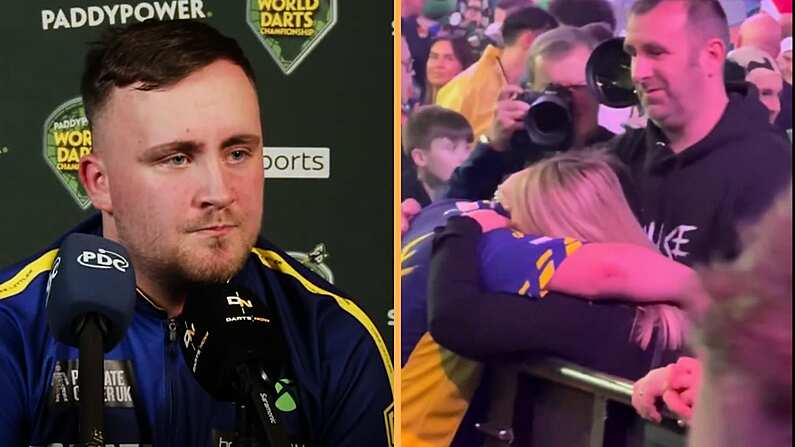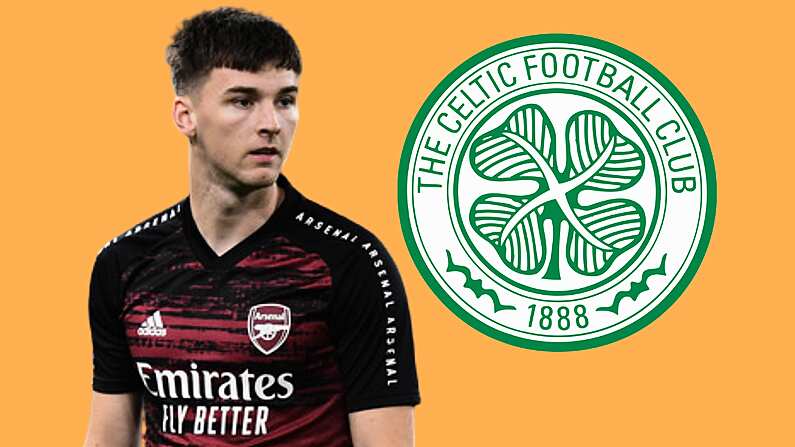36 years of age seems a wildly young age to be entrusted with the responsibilities as a Sporting Director of a football club. But if these jobs rely on the life lived, rather than passed, then perhaps Stephen McPhail is more than qualified.
You can listen to the full version of this interview on this week's edition of the Football Show:
McPhail was appointed as the Sporting Director of Shamrock Rovers a month after he retired from football, but his experience mocks tender age. Stephen McPhail met the Premier League as a teenager, and from there he has been heralded and hammered in the Champions League; capped ten times for Ireland and uncapped ten times as often; he has watched a club disintegrate around him and captained another at Wembley and has had the ephemeral anguish of injuries cast into perspective by two serious illnesses.
Now McPhail is back at home in Dublin, and is adjusting to life with a day job.
It's been a roller-coaster. I only retired six months ago, and once I retired this came job came along, so I haven't really had any time off! So I've found out what a real job really is. When you're a footballer you just look after number one, just thinking about the next training, and the next game. With this job, it really entails thinking about everybody but yourself.
The daily stuff, you could have four or five meetings a day, regarding all parts of the football club, so it's been interesting. I've been around the first team nearly every day. I share an office with the manager, Stephen Bradley, and with the other coaches: Damien Duff and Glenn Cronin.
So I am really loving it, but I'm still learning, and still making mistakes.
While he may admit to making mistakes and is still learning, McPhail has experience of a manual of how not to run a football club. He was part of the Leeds United that ended up cutting the cautionary Premier League parabola: a superb youth set-up was hoisted to the Champions League semi-final with a flood of heavy investment.
The subsequent loss of income from the failure to qualify for the Champions League from 2002, however, exposed the recklessness of that investment, and the club soon plummeted. They were relegated in 2004, and have yet to return to the top-flight.
So what mistakes will McPhail try to avoid repeating?
The huge part for me was coming through the academy system at Leeds, which back then was one of the best in Europe. So when I was asked about this job, it was crucial they gave us time to work on the academy system. The whole restructuring of the club, from the under-8s right up to the first team.
We will focus on the underage set up as much as the first team. Ultimately at Leeds they ended up focussing on the first-team too much, the budgets were all over the place. We won't do that. We have to make sure to grow our players.
There are elements of the Leeds experience McPhail would like to replicate, however. The camaraderie and togetherness in the dressing room is one. McPhail speaks glowingly of the impact senior players like David Batty had upon youngsters like McPhail, Harry Kewell, Paul Robinson, and Harry Kewell.
"If you speak to anyone who was involved in that squad, they will talk about the team spirit", recalls McPhail. "The team spirit was huge, and that's what we are trying to bring to our club".
Ahead of the Champions League semi-final with Valencia, for example, the entire squad shaved their heads (bar Ian Harte, who used the excuse of his getting married that summer). Heady days.
There were tough nights at the best of times, with a galling defeat in the Camp Nou sticking out, despite his and Gary Kelly's best efforts:
Halfway down that tunnel in the Camp Nou, there's a chapel, so we went in and had a little prayer. It didn't really work...we got beat 4-0!
In spite of the ugly end at Leeds, McPhail looks back upon those days favourably.
It was definitely a happy time. I made my debut around my eighteenth birthday in the Premier League, got to play in UEFA Cup semi-finals, the Champions League, all these memories which I look back as the highlight of my career. Leeds is obviously disappointing in how it ended, as we all had to disperse and leave the club in a very short period... it's a shame. But I loved it.
The structure was wrong off the field, and that's what did it for us.
After Leeds' relegation, McPhail moved to Barnsley, where he spent two years before making the move which would return him once again to the biggest stage: Cardiff City, whom he captained to the FA Cup final in 2008.
It definitely is the highlight, along with my first international cap. Standing in the tunnel, on a roasting hot day at Wembley, and to introduce my teammates to the whole world...it was a special day, a special week with a huge media focus from all over the world: Chinese, Australian, New Zealand, all these countries tune into it. But as a captain, to lead your team out at Wembley, I never thought it was going to happen. Special, special moment.
From those highs, McPhail had to deal with extraordinary lows. In November 2009, McPhail was diagnosed with lymphoma. He returned home to Rush to receive treatment, and somehow returned to play the following March. Cruelly, worse was to come.
In 2011, McPhail was diagnosed with a rare condition known as Sjogren's Syndrome, which affects the body's moisture-producing glands, such as tears, saliva, and cartilage. It leads to painful inflammation of joints, along with leaving the eyes and mouth of those diagnosed extremely dry.
It leads to painful inflammation of joints, along with leaving the eyes and mouth of those diagnosed extremely dry.
McPhail underwent experimental treatment in America, and took a phone call from Venus Williams, who also suffered from the same condition. The treatment worked, however, and he returned to play once again.
Football really gave the drive to get back. I always tried to cut it down to getting treatment, and getting fit and getting well as quickly as I could. This sounds selfish, but I was driven to get back onto the pitch. A lot of people were writing me off, saying I'd never play again. I never really felt like that. At one stage I did, but the [Sjogren's Syndrome] treatment worked, and I was desperate to get back to playing football.
Because that was the peak of my career, 30 years of age, playing sixty games a year, and then to be told you have cancer...it was a bit of an eye-opener. It didn't really sink in, and it still probably hasn't as things have kept rolling on. But I used football as a focus to get healthy and fit again, and get on the pitch again.
McPhail moved to Sheffield Wednesday, but turned down a longer stay at Hillsborough in favour of a move home to spend more time with his family.
He got the chance to end his career with Rovers, and is now embarking on a new one at the same club. As he takes that new step, how does he reflect on the part of his life that is now over?
Thankfully I made an ok career out of it..I was just delighted to play football for 20 years.
Those days will shape Rovers for years to come.
Stephen McPhail was speaking at the announcement of the Sporting Talent & Academic Rewards project at Trinity College, run in conjunction with TAP (Trinity Access Programmes), Shamrock Rovers and Trinity Sport. The project is aimed at providing students from Tallaght and the inner city with an outreach programme that supports both their educational and sporting development.












